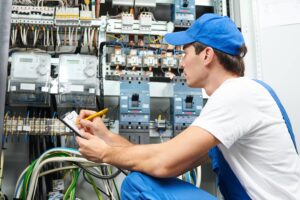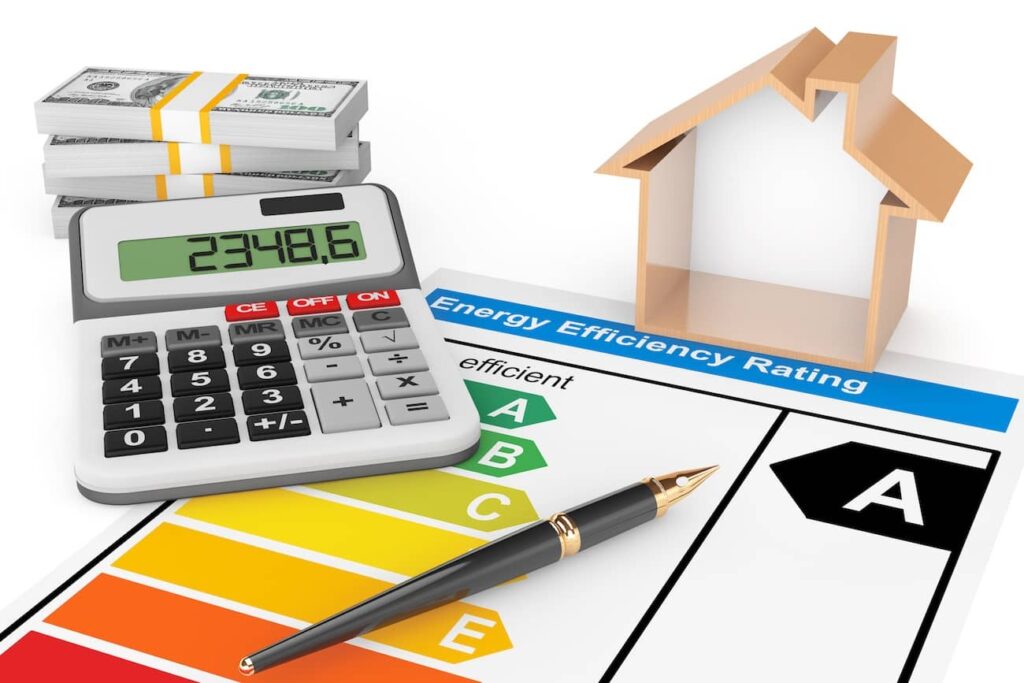As a landlord in the UK, you are obligated to follow the new electrical safety regulations for your electrical installations.
From July 2020, the regulations will come into effect for new tenancies and for already existing tenancies from April 2021.
Those not complying will need to pay hefty fines or may find their insurance claims unacceptable.
It is recommended that landlords need to conduct a safety check every five years and get an Electrical Safety Certificate, also known as the Electrical Installation Condition Report (EICR).
If they do not comply, tenants’ lives are put at risk due to compromise on the safety of their electrical installations.
The new rules have emerged after surveys pointed out that faulty electrical devices and wires cause most of the fires in the UK.
Through regular inspections, accidents caused by fire can be averted. With regular inspections, any wiring defects, faulty devices, or lack of earthing can be found out, and steps are taken to rectify them.
The EICR will make properties safer for tenants and landlords. Monetary loss and damage to property, as well as physical injury, can be prevented by conducting periodic electrical safety checks.
The rules to be observed by landlords for electrical safety
As a landlord, you need to keep in mind the following regulations:
- All electrical devices and installations at your property must be in good working condition at the beginning of a tenancy and be safe for use during the entire tenancy period
- The qualified electrician should check all wiring, sockets, light fixture, fuse boxes and permanently fixed appliances in the property
- You need to obtain an EICR once in every five years from a qualified electrician. Only a House in Multiple Occupation (HMO) is legally obligated to conduct an electrical check
- Devices like cookers, kettles, and others, provided to tenants, must have the CE marking and must be safe for use
- An Electrical Safety Certificate will be given on successful completion of the safety test. The certificate can be retained for five years, and at the expiry of the period, you must get a new one
- You need to get a smoke alarm installed at every floor of your property. The alarm must be in working condition at the start of the tenancy. Each room which has an open wood fire must have a carbon monoxide alarm installed
- The tenant needs to be handed a copy of the certificate before he occupies the property
- The tenant must be handed the certificate’s copy within 28 days after the test is conducted
- You need to keep ready a copy of the certificate to be given to local authorities on demand
- The tenant must be handed a copy within 28 days if he makes a requests
- You must have a ready copy to be presented to the next electrician carrying the test
Steps to be taken after getting EICR
The landlord is obligated to take the following actions after getting the Electrical Safety Certificate:
- If faults were found during the inspection, the landlord needs to get them rectified by a skilled electrician within 28 days of the findings
- The landlord has to get a written confirmation stating that the needed repairs have been done
- The tenant has to be given a duplicate of this confirmation with 28 days of the repairs
What the local authorities are authorized to do
The regulations give the local authorities the following rights:
- The landlord should hand over a copy of the EICR to local authorities within seven days of their request
- In case urgent repairs are required, the local authorities can notify the landlord. The landlord is obligated to do the needful within 28 days of the notice
- In case of the landlord’s non-cooperation, the local authorities can themselves carry on the repairs and ask for reimbursement from the landlord
- The local authorities can impose a penalty of £30000 if they can prove that the rules have been violated. For all succeeding violations, additional fines can be imposed
Some additional electrical safety recommendations
In addition to the above rules, these recommendations will ensure tenants are not at risk:
- It would be advisable for tenants to report any electrical issues noticed by them at the property
- The property should have proper RCD (Residual current device) protection
- An EICR should be obtained before each new tenancy. In case of a short tenancy period, the landlord can conduct just a visual inspection
- Always conduct the electrical test with the help of a qualified electrician even for minor jobs
The Electrical Safety Certificate ensures the tenant that the property is safe from the dangers posed by faulty electrical devices and wiring.
From the landlord’s point of view, the EICR will prevent him from paying hefty fines and suffering financial losses due to legal actions taken by a tenant.













 Request Callback
Request Callback



